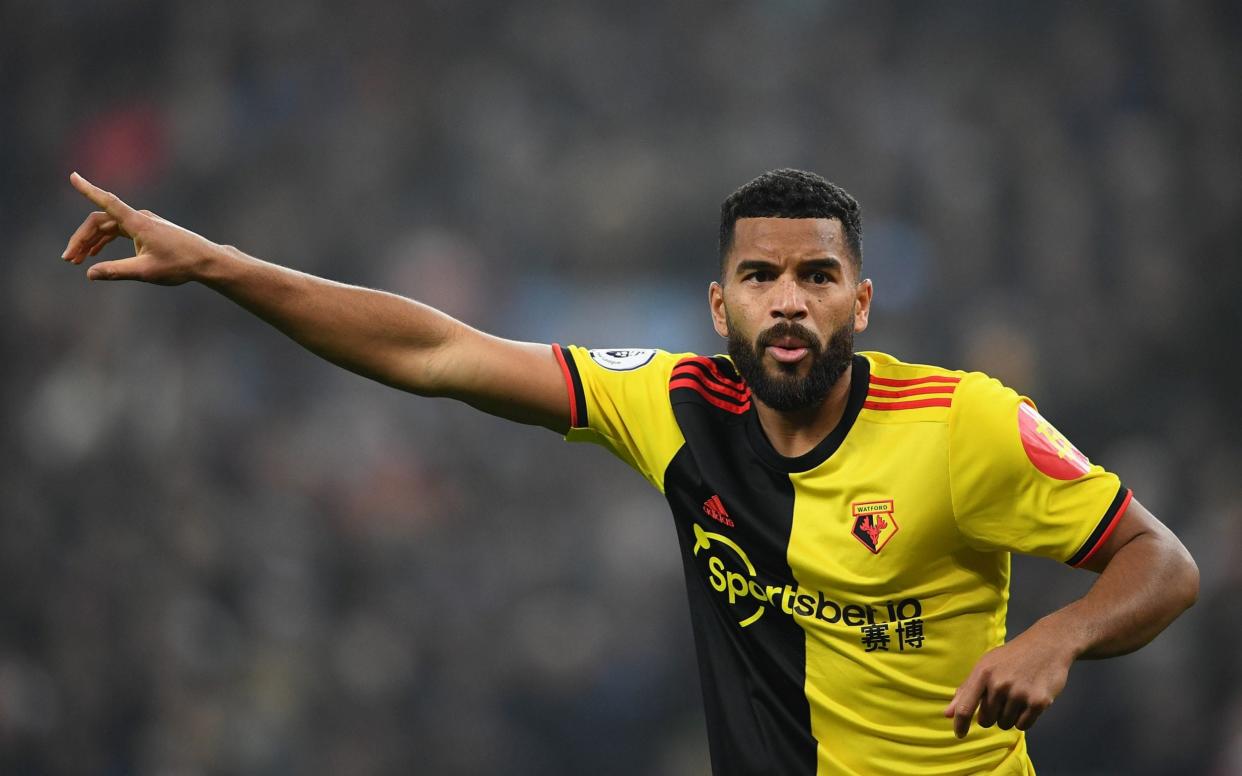Leading heart doctors advise athletes should not exercise for two weeks after positive Covid-19 test

A group of world-leading heart doctors have warned about the potential cardiac risks of the coronavirus to sportspeople and recommended that elite athletes should not return to exercise for at least two weeks after a positive test.
In guidance that will place further scrutiny on English football’s protocols ahead of next month’s planned ‘Project Restart’, the American College of Cardiology have endorsed a new framework which implores caution following evidence of a significantly increased risk of cardiac injury among hospitalised patients with Covid-19.
The cardiologists also highlighted the many unknowns about Covid-19 and recommended that even sportspeople who are asymptomatic when they test positive, like Watford’s Adrian Mariappa, should gradually resume exercise only after two weeks of rest.
For people with mild or severe symptoms, they recommend that a 14-day rest period should begin only once symptoms have completely ceased and then be followed by a “slow resumption of activity”. In the symptomatic cases, cardiac screening and blood testing is advised after a positive test amid particular concern over the possibility of a potentially fatal condition called myocarditis, which is when a virus directly invades the heart muscle and can be worsened by exercise.
“These athletes are pushing their bodies regularly to the limits of human endurance and so you have to actually be extra cautious in that instance,” said Dr Dermot Phelan, who advises the NBA and is the director of the Sports Cardiology Centrr at Atrium Health. As well as the prevalence of cardiac injury in hospitalised patients with Covid-19, Dr Phelan highlighted an Italian study which has shown a dramatic increase in sudden cardiac arrests during the coronavirus pandemic. “It begs the question of how often Covid is affecting the heart muscle,” he said.
It is understood that there has been a full cardiac-screening programme that would check for any signs of myocarditis since the Premier League footballers resumed training last week following their enforced break.
According to sources, there are internal guidelines for professional football and an asymptomatic positive case could return to ‘graded’ activity on day eight - after seven days of self-isolation and a negative test - and then resume team training after 14 days. This would be overseen by a club doctor, but would potentially allow for a return to activity a week earlier than the recommendations in America. A player who tested positive and was symptomatic would need to be free of symptoms for two weeks before they returned to training.
Return to training protocols for elite sport are mentioned in the UK Government’s guidance - and there is an expectation that these will evolve - but there is nothing specific about additional screening or minimum time-scales following a positive Covid-19 test. Individual sports also have some flexibility over their individual policies.
Dr Jonathan Kim, who is the chief of sports cardiology at Emory University, also advises the NBA, and another co-author of the return to play guidance which is expected to be adopted by US sports, stressed that they were taking a precautionary approach.
“You always start off conservative because the stakes are high - one life lost is too many,” he said. “What we do know is that there is a high prevalence of cardiac injury among these hospitalised patients [with Covid-19] compared to other infectious viral syndromes.”
The precise cause of that impact is currently unknown, as is whether people with mild or no symptoms are similarly impacted. “How myocarditis might be at play is very high on our minds so, for now, we felt that it was important to be conservative before you let that athlete into play,” said Dr Kim. “As we learn more, maybe you can become more relaxed but we need to take this virus extremely seriously.”
Premier League players have themselves specifically sought further research on data which has shown that black and minority ethnic people have been disproportionately impacted by Covid-19.
A separate study of Italian immunologists and lung specialists has also raised concern at the possibility of athletes, who have Covid-19 but are asymptomatic, being at risk of spreading the virus into their lungs with strenuous exercise. Watford captain Troy Deeney and Chelsea midfielder N’Golo Kanté, whose brother died of a heart attack in 2018, both decided not to rejoin team training last week.

 Yahoo News
Yahoo News 
